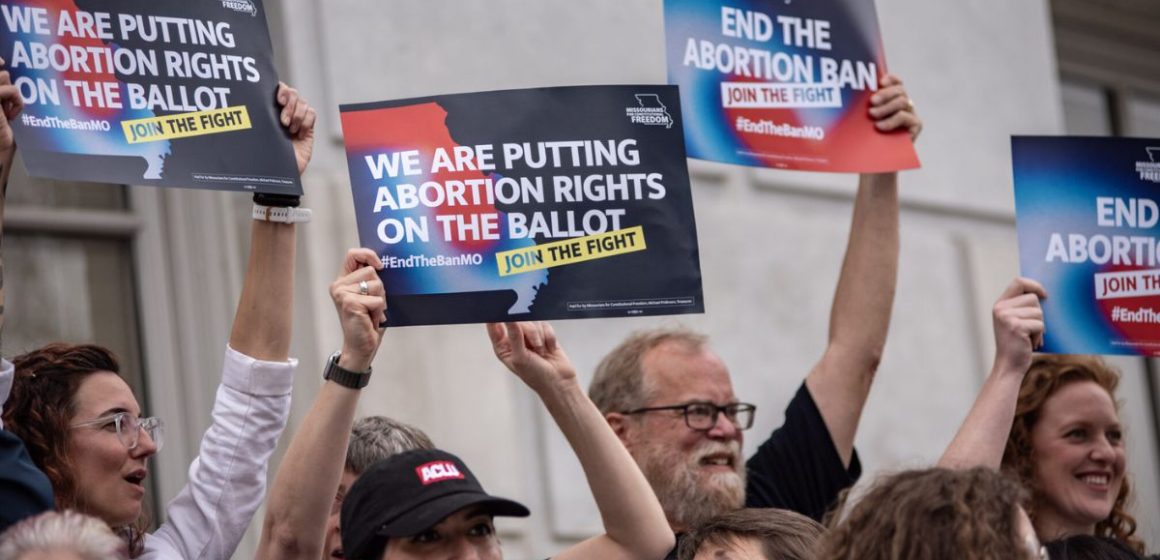Ahead of impending certification deadlines, abortion rights ballot measures in Nebraska and Missouri are being challenged in court.
In line with a lawsuit that claimed the “petition violated state law by failing to provide voters with a list of Missouri laws that would be repealed, directly or by implication,” should it pass, Missouri Judge Christopher Limbaugh ruled against the state’s abortion rights ballot measure on Friday.
The proposed law sought to forbid any interference from the government in matters pertaining to abortion by enshrining the right to an abortion in the state constitution.
Tuesday is the deadline for amending the ballot, but Missourians who are spearheading the initiative intend to challenge Limbaugh’s ruling before the state Supreme Court in an attempt to halt the injunction.
In the event that the court declines to step in, the ballot item would be declared officially void by an injunction.
“The court’s decision to block Amendment 3 from appearing on the ballot is a profound injustice to the initiative petition process and undermines the rights of the 380,000 Missourians who signed our petition demanding a voice on this critical issue,” Rachel Sweet, campaign manager for Missourians for Constitutional Freedom stated.
In Missouri, abortion is prohibited unless in cases where the mother’s life or health is at risk.
Two competing abortion petitions were scheduled to be presented to voters in November in Nebraska, a state with a 12-week abortion prohibition; however, it is now unknown if voters would be given the opportunity to choose.
A bill that would guarantee the right to an abortion up until fetal viability is being challenged in court because it may not comply with the single-subject requirement.
The second and third trimesters would be off limits to abortion under a competing ballot proposition, “except when a woman seeks an abortion necessitated by medical emergency or when the pregnancy results from sexual assault or incest.”
The lawsuits were the subject of oral arguments before the Nebraska Supreme Court on Monday.
“We think the rights amendment clearly qualifies under the single subject test. We think the restrictions amendment probably does as well under this Court’s jurisprudence. However, if the Court were to apply a more tightly focused, stricter approach to the single subject test, as urged by the relators in the prior case, we think that the restrictions amendment clearly would fail that test far, far before the rights amendment would,” Attorney David Gacioch stated.
In Nebraska, ballots must be certified by September 13.
Since the U.S. Supreme Court’s Dobbs decision overturned Roe v. Wade and ended federal safeguards for the practice, abortion has been a contentious political issue at the state level.
Read Also: Michigan’s Efforts to Prevent Childhood Tooth Decay Take Shape
Since then, state-wide ballot initiatives supporting the process have been successful, and this November, voters in Arizona, Nevada, Florida, South Dakota, Colorado, New York, Maryland, and Montana will have the opportunity to vote on measures comparable to these.
Democrats have united around abortion rights, and Vice President Kamala Harris’ candidacy has made the struggle for reproductive freedom a key platform.
Throughout the campaign trail, Harris has declared again and time again that former President Donald Trump will enact a nationwide ban on abortion.
In spite of his insistence that the matter should be left to the states, Trump declared his intention to vote against a ballot initiative that would forbid limits on the practice until fetal viability, citing the Florida six-week ban as “too short” of a time frame.



Leave a Reply